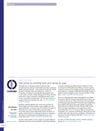Search
for
Sort by
Research
300-330 / 1000+ resultsresearch Minoxidil
research Minoxidil
research Finasteride-Related Peyronie's Disease
research Finasteride
research Clobetasol/Minoxidil

research The Childbearing Years: Hair Diseases
Different hair diseases affect people during childbearing years, with treatments ranging from medication to psychological support.

research News Updates
Early exposure to germs may protect against autoimmune diseases, lack of sex increases alcohol preference in fruit flies, a potential baldness treatment could involve blocking a specific receptor, skin memory cells help prevent re-infection, high-fat diets can affect brain cells related to weight, and the link between social status, stress, and heart disease in primates is unclear.

research GABRA2 Alleles Moderate the Subjective Effects of Alcohol, Which Are Attenuated by Finasteride
GABRA2 gene variations impact alcohol response, and hair loss medication finasteride reduces some effects.

research Female Hair Loss: Assessment, Categorization, and Management
The document concludes that diagnosing female hair loss requires careful examination, with treatments varying by condition and psychological support often necessary.

research A Review and Meta-Analysis of the Prevalence and Health Impact of Polycystic Ovary Syndrome Among Medical and Dental Students
PCOS affects nearly 25% of female medical and dental students, impacting their academic and social lives.
research Children’s Hair Cortisol and Hair Testosterone Concentrations in Response to Environmental Changes: From Summer Holidays to School
Girls had higher stress hormone levels during school due to social and emotional issues, while boys had higher overall hormone levels with slight changes when school started.

research A Clinical Study of Geriatric Dermatoses
Older adults have a wide range of skin conditions, with dry skin being very common and many also experiencing skin growths, itching, and infections.

research Aesthetic Reconstruction in Burn Patients
Improve burn patients' appearance and function using various techniques, teamwork, and psychological support.

research Psychosocial Impact of Cicatricial Alopecias
Most patients with cicatricial alopecias face significant psychological and social challenges due to their hair loss.
research Cosmeceutical Therapy: Addressing the Effects of UVR Photoaging on the Skin’s Circadian Rhythm
Natural skincare products may help reduce sun damage and support the skin's daily cycle.

research Autologous Adipose Tissue Injection in the Treatment of Alopecia: A Mini-Review
Injecting a person's own fat into their scalp may help regrow hair and improve hair thickness in different types of hair loss.

research Acne as a Chronic Systemic Disease
Acne is a chronic disease linked to various systemic conditions and has significant psychological and social effects.

research An Affirming Approach to Caring for Transgender and Gender-Diverse Youth
The document advises health care providers on how to support transgender and gender-diverse youth with appropriate care and referrals.

research Evaluation and Treatment of Facial Feminization Surgery: Part I. Forehead, Orbits, Eyebrows, Eyes, and Nose
The document concludes that facial feminization surgery improves psychological well-being and social acceptance for transgender individuals.

research Telogen Effluvium: Exploring the Intersection of Dermatology, Psychology, and Public Health
Telogen Effluvium (TE) significantly affects women due to stress and hormonal changes, requiring better public health policies and mental health support.

research Psychological Characteristics of Women with Androgenetic Alopecia: A Controlled Study
Women with AGA often face anxiety, depression, and low self-esteem; psychological support is important.

research Functional Hair Follicle Regeneration
Scientists made working hair follicles using stem cells, helping future hair loss treatments.

research AP Collagen Peptides (APCPs) Promote Hair Growth by Activating the GSK-3β/β-Catenin Pathway and Improve Hair Condition
AP collagen peptides help hair grow and improve hair health.

research The Possibilities of Using Chromium Salts as an Agent Supporting Treatment of Polycystic Ovary Syndrome
Chromium salts may help with insulin sensitivity in PCOS, but more research is needed to confirm their overall effectiveness and safety.

research Acne
Acne affects most teenagers and can continue into adulthood, with various treatments available that show improvement but have concerns like antibiotic resistance and side effects.

research Cicatricial Alopecia: Overview and Treatment Options
The document concludes that treatments for cicatricial alopecia are not well-supported by evidence, but hair transplantation shows more predictable and satisfactory results.

research Feel Better by Planting Trees and Taking Up Yoga
Planting trees and doing yoga might make you feel better; yoga can help with asthma symptoms, and certain treatments can improve female hair loss.

research Wild Geladas (Theropithecus Gelada) in Crops Reduce Aggression and Affiliation More Than in Pasture Areas
Wild geladas in crop areas show less grooming and aggression.

research A Review of the Most Common Dermatologic Conditions and Their Debilitating Psychosocial Impacts
Common skin conditions can greatly affect a person's mental health and social life.